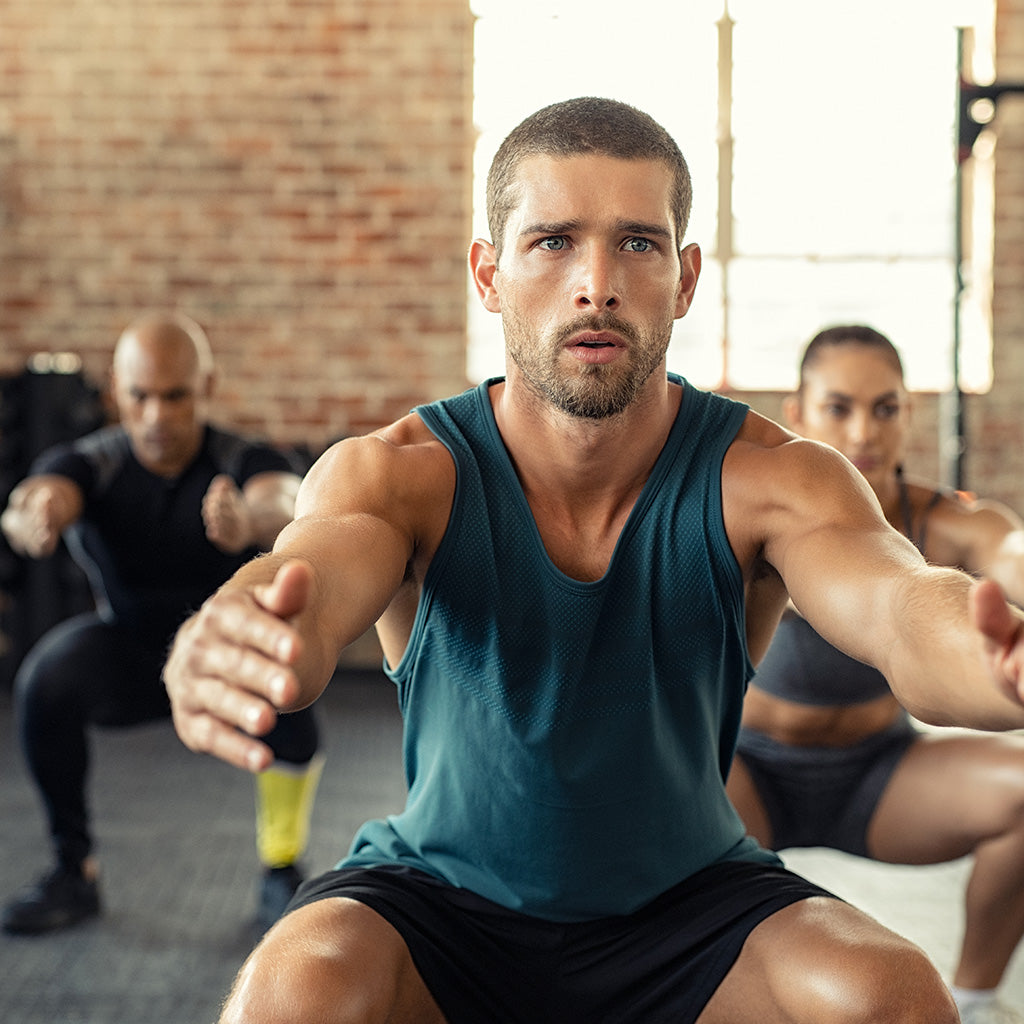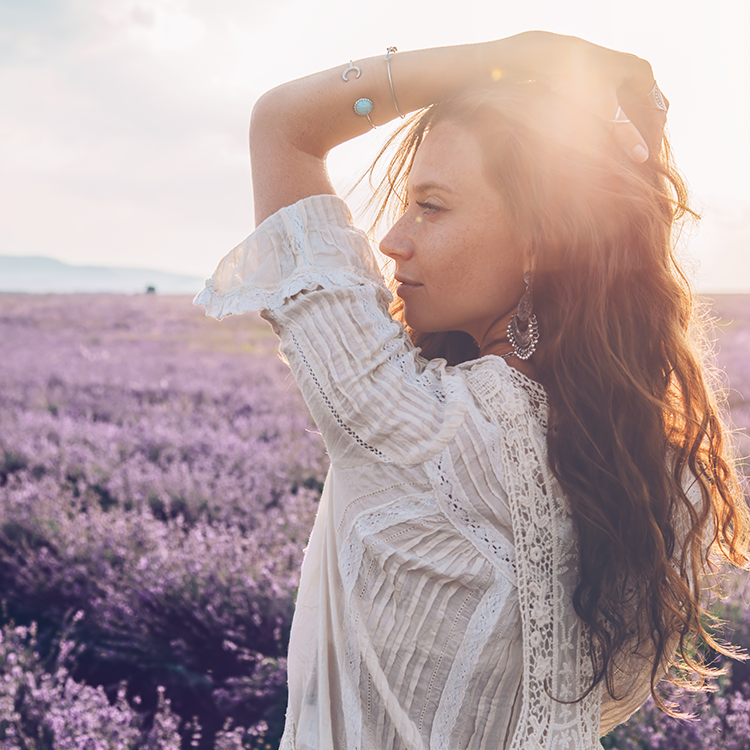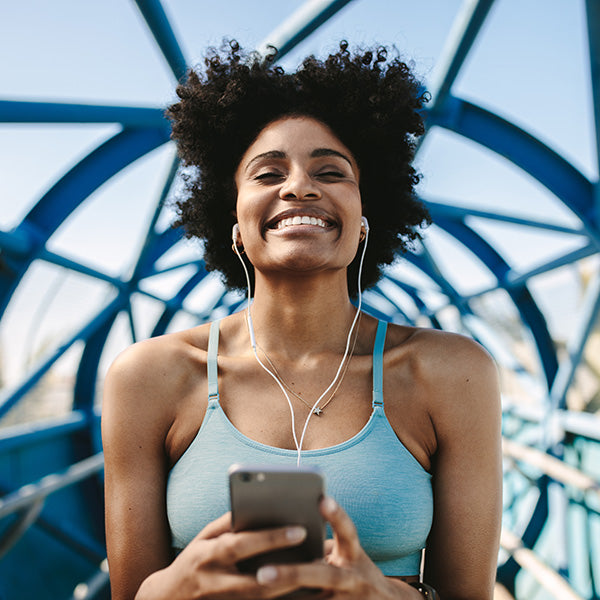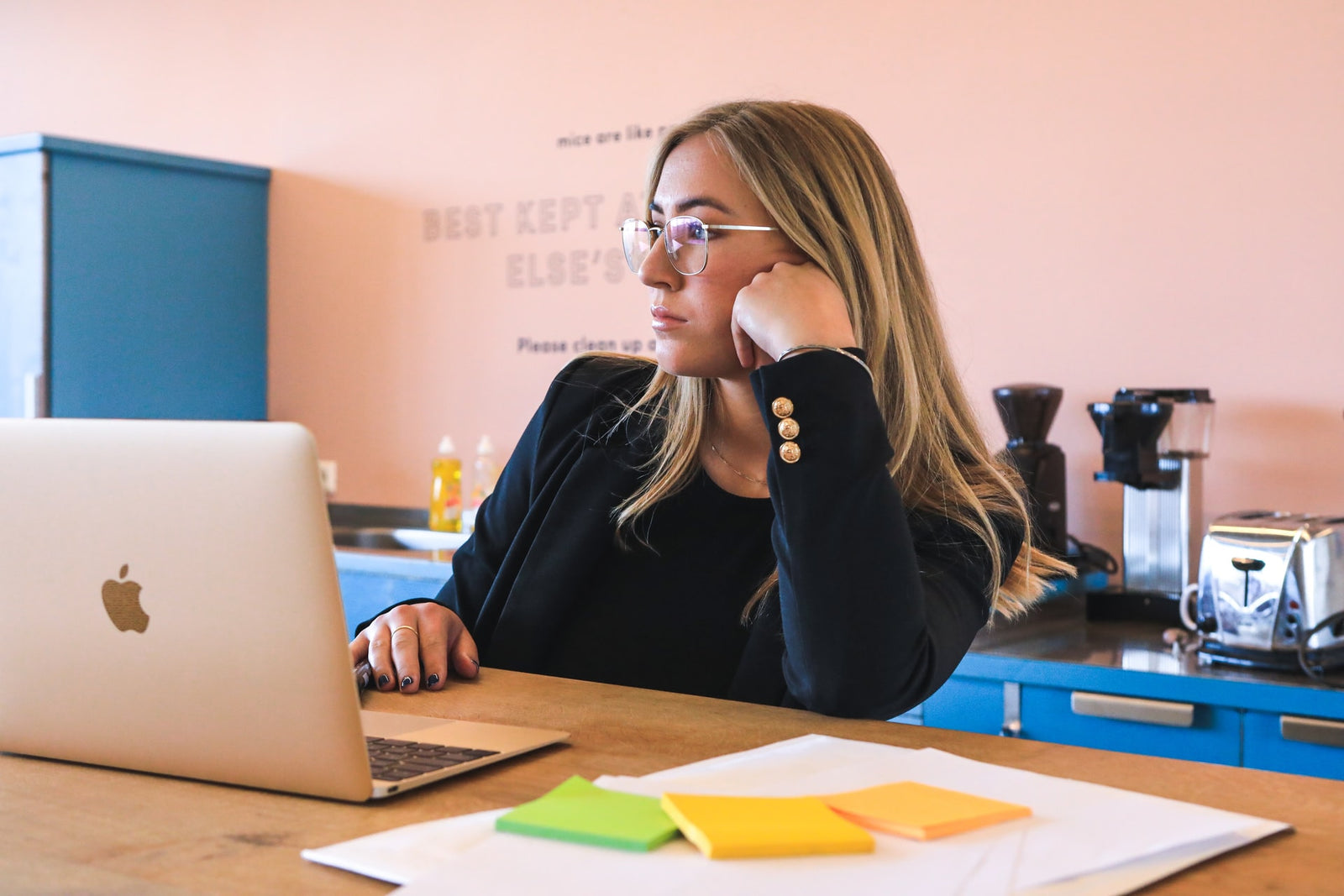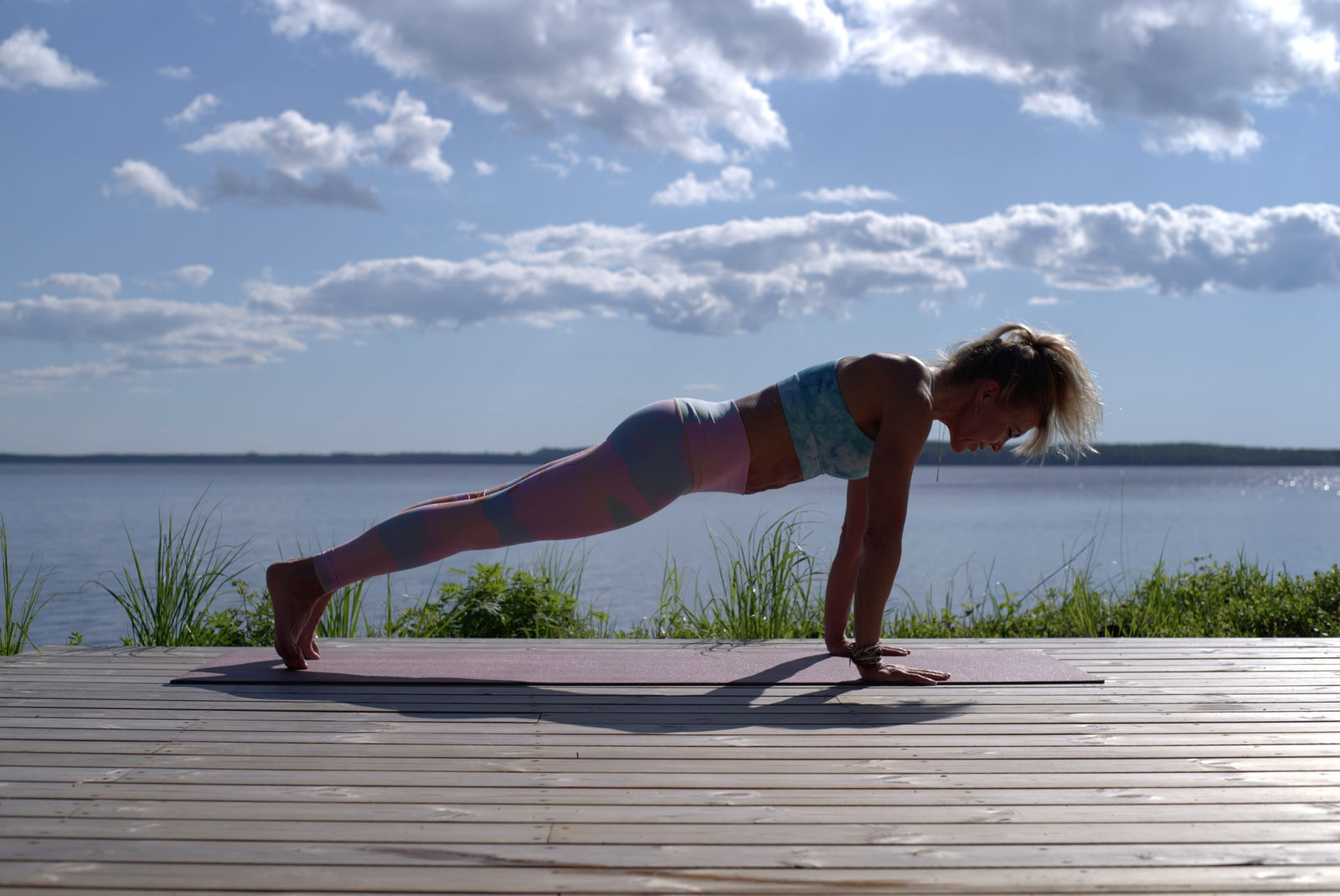10:00 PM. It’s bedtime. After a warm bath, you retreat to your favorite warm linen that smells as fresh as summertime. You lay down your comfortable bed and tuck yourself under the sheets. You turn off your bedside lamp before closing your eyes, ready to surrender yourself to REM.
Thoughts start to run wild. Ideas jump in. You remember something you forgot to do this morning. You recall some gossip your colleague told you. You feel a strong urge to check Instagram and see if it’s true. It’s like your mind is suddenly running a marathon, but your body is too tired from the marathon of meetings it has just gone through.
You try to get rid of thoughts. Hard. But thoughts keep running.
You give up and open your eyes. What’s the time?
10:02 PM.
And in the quiet of your dark, comfortable room, you hear yourself say…
“Not again.”
——————————————————————————————————————————
Such a classic case of sleeplessness.
There are so many factors that could stop you from having your beauty sleep. When you go through it, you can’t help but feel a surge of helplessness.
And this feeling is valid. Various researchers say that poor quality of sleep leads to adverse effects on hormones, as well as your body’s physical and mental performance. [1, 2, 3, 4, 5] Reports show that the quality and amount of sleep has dipped, with many people going through the same thing that we just described above. [6, 7]
On the flip side, a good night’s sleep can give your body a much-needed boost helping you exercise better and become healthier - no news flash here. [2, 8, 9, 10]
Hence it’s extremely important to sleep well.
Here are 6 ways on how to make sure you constantly get a good night’s sleep:
1. Keep a consistent sleep schedule
- The most important word here is “consistent.” Try getting up and hitting the hay at the same time every day. Yes, including weekends. This doesn’t mean always going to bed at 10:02 PM and waking up at 5:37 AM. But sleeping and waking at the same hour helps establish your body’s circadian rhythm, or the cycle by which you sleep and wake. It also leads to quality sleep in the long-term. [11] Eventually, you’ll find yourself naturally waking up around the same time without the help of an alarm clock.
- If you can’t sleep within the first 20 minutes, get out of bed and try doing something else. That just means that your mind and/or body is still active and you need to feel a little bit more tired. Read a book in the lounge or fire up some soothing, mellow music to wind down. But avoid logging onto your laptop and checking your smartphone (more on this later).
- Avoid glancing at your clock and counting down the hours to sunrise. This could only add unnecessary pressure and anxiety. Try replacing your digital, glow-in-the-dark clock with an analog one (make sure the hand movements don’t make a loud ticking noise).
- Set your waking time to allow yourself 7-8 hours of sleep. Work backwards and have the discipline to go to bed in time for your waking hour.
2. Watch what you eat and drink
- Some foods help in telling our body to call it a day and sleep. These include dairy products (warm milk), rice and oats. Some food and beverages though do the exact opposite. Sugar and caffeinated drinks like coffee should totally be out of the picture come late afternoon. [12]
- If you’re a java-lover, make sure you drink just the right amount of coffee in a day. Here’s how much you should have daily. Stick to getting your caffeine fix sometime between the morning and right after lunchtime. (Related article: When’s the best time to drink coffee)
- A study has found that getting your caffeine fix 6 hours before bedtime will eat into your sleep and affect its quality. [13] Caffeine can stay in your system for 6-8 hours, so steer clear of it in the afternoon, especially when you find it hard to sleep. [14, 15]
- While alcohol certainly helps you fall asleep (more like pass out), having it before bed is not really recommended. You’ll end up waking up in odd hours, getting up for the toilet, dehydrated, or worse of all, hung over. [16]
- Avoid going to bed full, unless you want to wake up feeling bloated or experiencing indigestion. Devour that massive steak a few hours before hitting the sack and allow your body to digest the food for at least an hour.
3. Make your sleeping environment comfortable
Did you know that the amount of light or natural sunlight in your room affects how well you sleep? Thanks to your body’s circadian rhythm, you’ve got a natural alarm clock that prompts your body to get up when there’s light streaming in your bedroom. [17, 18, 19, 20, 21]
A study shows that exposure to bright light reduces the time before insomnia patients can fall asleep by 83%. [22] Another shows that exposure to 2 hours of bright light improves the quantity of sleep by 2 hours, sleep efficiency by 80%. [23]
- Arrange your room such that there’s ample light entering it.
- Avoid exposure to the “blue light” of your devices, which slows down production of melatonin, the hormone that enables you to sleep. Stop using them 2 hours before going to sleep - or at least try to! [24]
- Remember that your bedroom is a place for sleeping. Remove any distractions such as mobile devices, laptops, TVs and other technology that could keep you from your beauty sleep. [25]
- Stay away from external noise, such as outdoor traffic or dripping faucets in the toilet. Noise can also lead to poor quality of sleep and even long-term health issues. [26, 27, 28]
- Set the right temperature for you. Turn on the AC if needed, or invest in a heater or thick duvet to warm you up during cold nights. Usually, 70°F or 20°C is just the right amount of cold. Studies report that bedroom temperature also affects sleep quality, more than external noise. [29, 30, 31]
4. Avoid daytime naps
- Taking naps during the day may confuse your circadian rhythm and eat up on your snooze time at night. [32, 33] In a study, the participants even ended up groggy and sleepier than their state before their daytime naps. [34]
- If you should take a power nap, set your timer to 30 minutes max.
5. Include some physical activity into your daily routine
- Regular physical activity can bring better sleep. It helps reduce stress and anxiety, promoting better disposition and fewer worries in bed.
- Work out in the morning or early afternoon. A study has found that doing rigorous exercise at night will increase the body’s adrenaline production and make it harder to sleep. [35] Aim to finish any heavy physical activity at least 3 to 4 hours before bedtime.
- However, yoga, tai chi and other mild mind-and-body exercises are perfect right before bed. [36]
6. Take supplements that are a natural sleeping aid
- Melatonin supplements are highly popular as sleeping aids. They’re even used to treat insomnia and are the easiest ways to achieve a good night’s sleep. [37, 38]
- Check out our sleep formula Sleep Well. It's an an herbal sleep supplement made with natural ingredients safe for everyday use. Unlike other sleeping pills & OTC medicine, Sleep Well doesn’t make you dependent for sleeping. It uses ingredients backed by nature and proven by science to help you maintain a balanced sleep cycle schedule without damaging side effects. It also makes biohacking sleep easier with deodorized Valerian to benefit from this amazing herb without its potent smell! Buy it here.
For more tips, you can watch this video on how to sleep better.
Here's to a good night's sleep tonight!
Sources
[1] https://www.ncbi.nlm.nih.gov/pubmed/17308390
[2] https://www.ncbi.nlm.nih.gov/pubmed/19955752
[3] https://www.ncbi.nlm.nih.gov/pubmed/23376698
[4] https://www.ncbi.nlm.nih.gov/pubmed/23319909
[5] https://www.ncbi.nlm.nih.gov/pubmed/25372728
[6] https://www.ncbi.nlm.nih.gov/pmc/articles/PMC4302758/
[7] https://www.ncbi.nlm.nih.gov/pubmed/20669438
[8] https://www.ncbi.nlm.nih.gov/pubmed/8776790
[9] https://www.ncbi.nlm.nih.gov/pubmed/15282995
[10] https://www.ncbi.nlm.nih.gov/pubmed/10329298
[11] https://www.ncbi.nlm.nih.gov/pubmed/12941057
[13] https://www.ncbi.nlm.nih.gov/pubmed/24235903
[14] https://www.ncbi.nlm.nih.gov/pubmed/10049999
[15] https://www.ncbi.nlm.nih.gov/pubmed/10906543
[16] https://sleepfoundation.org/sleep-news/study-physical-activity-impacts-overall-quality-sleep
[17] http://pubs.niaaa.nih.gov/publications/arh25-2/85-93.htm
[18] https://www.ncbi.nlm.nih.gov/books/NBK10839/
[19] https://www.ncbi.nlm.nih.gov/pubmed/24394440
[20] https://www.ncbi.nlm.nih.gov/pubmed/15106233
[21] https://www.ncbi.nlm.nih.gov/pubmed/18815716
[22] https://www.ncbi.nlm.nih.gov/pubmed/8340561
[23] https://www.ncbi.nlm.nih.gov/pubmed/12789673
[24] http://www.sleepcouncil.org.uk/wp-content/uploads/2013/01/Get-a-Good-Nights-Sleep.pdf
[25] http://www.health.harvard.edu/staying-healthy/blue-light-has-a-dark-side
[26] https://www.ncbi.nlm.nih.gov/pubmed/12493567
[27] https://www.ncbi.nlm.nih.gov/pubmed/26483931
[28] https://www.ncbi.nlm.nih.gov/pubmed/25642690
[29] https://www.ncbi.nlm.nih.gov/pubmed/1811316
[30] https://www.ncbi.nlm.nih.gov/pubmed/15173935
[31] https://www.ncbi.nlm.nih.gov/pubmed/3381060
[32] https://www.ncbi.nlm.nih.gov/pubmed/21463024
[33] https://www.ncbi.nlm.nih.gov/pubmed/22659474
[36] https://www.webmd.com/a-to-z-guides/discomfort-15/better-sleep/slideshow-sleep-tips
[37] https://www.ncbi.nlm.nih.gov/pubmed/21340475
[38] https://www.ncbi.nlm.nih.gov/pubmed/18036082

